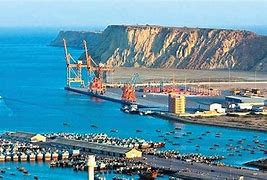China-Europe freight train service marks 100,000th milestone as Train X8083 arrived Duisburg, Germany on Tuesday.
The arrival of the 100,000th China-Europe freight train in Duisburg, Germany, on Tuesday morning marked a significant milestone in the history of this rail link.
Train X8083, which departed from Chongqing, reached Duisburg’s terminal at 9:10 am local time, carrying a variety of goods, including electronics, industrial components, and household items. These items were promptly unloaded for distribution to various European destinations.
Duisburg, a city once renowned for its steel industry, has transformed into a major trade hub connecting Europe and Asia. Dubbed “steel camels,” these freight trains play a pivotal role in this transition, carrying European exports on their return journeys.
During a reception to celebrate this achievement, Chang Haitao, acting consul general of China in Dusseldorf, highlighted the service’s contribution to enhancing transport efficiency and strengthening trade relations, underscoring the Belt and Road Initiative’s impact on fostering global connectivity.
Chang expressed optimism about the future, emphasizing that the China-Europe freight train service will continue to drive collaboration, connectivity, and sustainable economic growth across Eurasia.
Markus Teuber, China affairs commissioner for the City of Duisburg, noted that the service has created a win-win scenario for both China and Germany, expressing confidence that it will continue to thrive as more companies recognize its advantages for imports and exports.
Markus Bangen, CEO of Duisburger Hafen AG, stated that the rail service is strengthening ties between China and Europe while establishing a new international transport market that mutually benefits both economies.
Bangen also highlighted Duisburg’s evolving role as a key hub along the rail route, attracting investments, creating jobs, and driving growth in the logistics sector.
According to Tian Zhongyu, general manager of China Railway Container Transport Co Ltd’s European subsidiary, annual train trips have increased significantly from 1,702 in 2016 to over 17,000. Additionally, the time required for completing 10,000 journeys has dropped from 90 months to just six.
Tian further noted that Duisburg Port has become home to over 100 logistics companies, creating more than 20,000 jobs since the freight train operations began, boosting local development and enhancing connectivity across regions along the route.
Related Posts

















